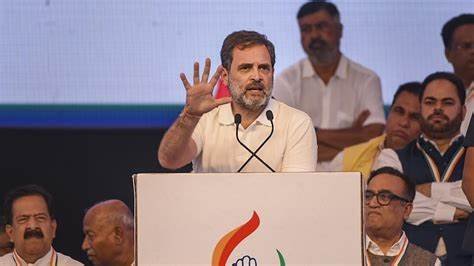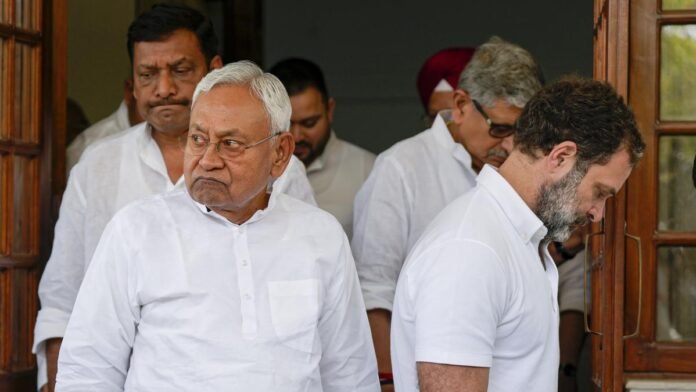In the fast-paced arena of Indian politics, alliances are formed and broken, often reshaping the landscape of power and influence. The recent rift between Nitish Kumar, the Chief Minister of Bihar, and Rahul Gandhi, the leader of the Indian National Congress, has sparked significant debate and speculation within political circles. As Nitish Kumar’s Janata Dal (United) party decided to contest the upcoming Bihar assembly elections independently, Rahul Gandhi’s response, “Don’t Need Him,” encapsulates the evolving dynamics of coalition politics and the shifting sands of alliances in the Indian political landscape.
The political fallout between Nitish Kumar and Rahul Gandhi marks a significant departure from the past when their parties collaborated in Bihar and at the national level. Nitish Kumar, once a key ally of the Congress-led United Progressive Alliance (UPA), has gradually distanced himself from the coalition, forging new alliances and realigning his political strategy in pursuit of electoral success. His decision to contest the Bihar assembly elections independently underscores his desire to assert his party’s autonomy and consolidate his political base without being tethered to a national alliance.
Rahul Gandhi’s response, “Don’t Need Him,” reflects the Congress party’s acknowledgment of Nitish Kumar’s diminishing relevance in the current political landscape. While Nitish Kumar was once considered a crucial ally for the Congress, particularly in Bihar, where his party played a significant role in the state’s politics, his recent actions have led to a reassessment of his importance within the opposition fold. Rahul Gandhi’s terse dismissal suggests a willingness to chart a new course for the Congress party, one that does not hinge on alliances with regional players like Nitish Kumar.

The rift between Nitish Kumar and Rahul Gandhi also highlights the broader challenges facing opposition parties in India, particularly in the context of coalition politics. With the Bharatiya Janata Party (BJP) and its allies dominating the political landscape at the national level, opposition parties have struggled to form cohesive alliances and mount a credible challenge to the ruling coalition. The fractious nature of opposition politics, marked by shifting loyalties and competing agendas, has hindered efforts to present a united front against the BJP.
Moreover, Nitish Kumar’s decision to contest the Bihar assembly elections independently underscores the growing trend of regional parties asserting their autonomy and pursuing state-centric agendas. As regional leaders increasingly prioritize local issues and cater to regional aspirations, the traditional dynamics of coalition politics are being reshaped, with national parties like the Congress finding it increasingly challenging to navigate the complex web of regional alliances and rivalries.
In this context, Rahul Gandhi’s response, “Don’t Need Him,” can be seen as a pragmatic acknowledgment of the changing realities of Indian politics. While alliances with regional players like Nitish Kumar were once seen as essential for the Congress party’s electoral prospects, the shifting political landscape necessitates a recalibration of strategy. By signaling a willingness to chart an independent course, Rahul Gandhi aims to reposition the Congress party as a credible alternative to the ruling coalition, capable of addressing the diverse needs and aspirations of the Indian electorate.
However, while Rahul Gandhi’s response may reflect a desire to assert the Congress party’s autonomy, it also underscores the challenges of forging meaningful alliances in Indian politics. In a landscape marked by fragmentation and fluidity, building consensus and maintaining unity among diverse stakeholders remain formidable tasks. As opposition parties grapple with these challenges, the need for effective leadership and strategic vision becomes increasingly apparent.
In addition, the rift between Nitish Kumar and Rahul Gandhi and the latter’s response, “Don’t Need Him,” underscore the evolving dynamics of coalition politics in India. As regional players assert their autonomy and pursue state-centric agendas, national parties like the Congress are forced to reassess their strategies and alliances. While the shifting political landscape presents challenges, it also offers opportunities for parties to carve out their identities and articulate distinct visions for the future. As the Indian political landscape continues to evolve, the ability to adapt and innovate will be crucial for parties seeking to remain relevant in an increasingly complex and competitive environment.

